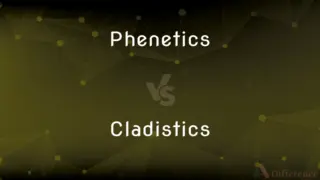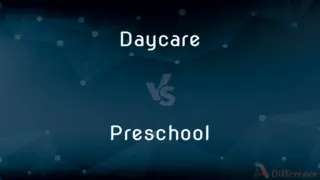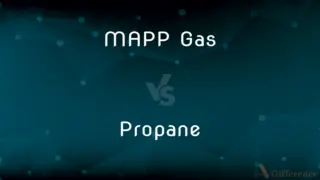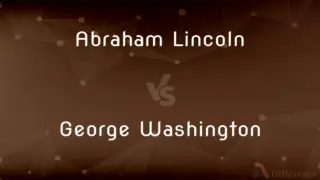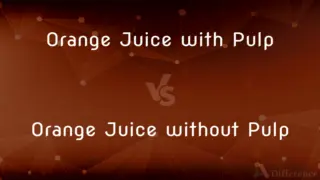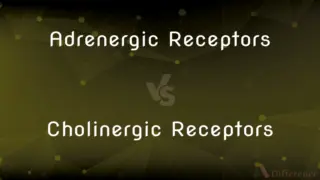Truth vs. Validity — What's the Difference?
By Urooj Arif & Fiza Rafique — Updated on March 20, 2024
Truth pertains to the accuracy of content, reflecting how well it aligns with facts or reality. Validity, on the other hand, concerns the logical consistency of arguments, irrespective of the truthfulness of the premises.

Difference Between Truth and Validity
Table of Contents
ADVERTISEMENT
Key Differences
Truth is a concept that deals with the alignment of statements, beliefs, or propositions with reality or facts. When we say something is true, we imply that it accurately reflects the way things are. On the other hand, validity pertains to the structure of logical arguments, focusing on whether the conclusion logically follows from the premises. Validity does not concern the actual truthfulness of the premises or the conclusion, but rather the logical connection between them.
In the realm of truth, the focus is on correspondence with empirical evidence or factual correctness. A statement is considered true if it can be verified or corroborated with real-world observations or data. Whereas, in discussions of validity, the emphasis is on the form and coherence of reasoning. An argument is valid if, assuming the premises are true, the conclusion must also be true.
Truth is often discussed in the context of knowledge, belief, and information. It is a fundamental aspect of epistemology, the branch of philosophy concerned with the nature and scope of knowledge. Whereas validity is a key concept in logic and critical thinking, where it serves as a criterion for evaluating the strength of deductive arguments.
The pursuit of truth involves processes like observation, experimentation, and critical analysis to ascertain the accuracy of statements or theories. On the other hand, assessing validity often involves examining the structure of arguments, identifying premises and conclusions, and applying rules of logic to determine if the argument holds.
In practical applications, truth is crucial for decision-making, problem-solving, and the advancement of knowledge across various fields. Validity, while also important in decision-making, particularly influences the rigor of academic research, legal arguments, and philosophical discourse, ensuring that conclusions are logically derived from their premises.
ADVERTISEMENT
Comparison Chart
Focus
Alignment with facts/reality
Logical consistency of arguments
Key Concern
Accuracy of content
Logical connection between premises and conclusion
Context
Knowledge, belief, information
Logic, critical thinking
Evaluation Method
Verification, observation, analysis
Examination of argument structure
Practical Importance
Decision-making, problem-solving
Academic research, legal arguments
Compare with Definitions
Truth
Truth refers to the state of being in accordance with fact or reality.
It is a truth that water boils at 100°C under standard atmospheric pressure.
Validity
An argument is considered valid if its conclusion logically follows from its premises, regardless of the truth of the premises.
A valid argument might have false premises but still be logically consistent.
Truth
In philosophy, truth is often aligned with concepts like authenticity and sincerity.
Seeking truth involves discerning genuine facts from falsehoods.
Validity
Validity in logic implies that if the premises are true, the conclusion must also be true.
In a valid argument, logical consistency is maintained throughout.
Truth
Truth can be subjective, varying with perspectives and contexts.
What is true in one cultural context might not be seen as such in another.
Validity
Validity is a key criterion in evaluating syllogisms and deductive reasoning.
Checking the validity of a syllogism involves assessing its logical structure.
Truth
The pursuit of truth is fundamental to scientific inquiry and investigation.
Scientists conduct experiments to uncover the truth about natural phenomena.
Validity
Validity can also pertain to the applicability of a logical conclusion in real-world scenarios.
For a legal argument to be persuasive, it must be both valid and applicable to the case at hand.
Truth
A true statement accurately reflects what is real or factual.
The statement The Earth orbits the Sun is true.
Validity
In research, validity refers to the accuracy with which a study reflects the concept it intends to measure.
A study's validity is crucial for its findings to be considered reliable.
Truth
Truth is the property of being in accord with fact or reality. In everyday language, truth is typically ascribed to things that aim to represent reality or otherwise correspond to it, such as beliefs, propositions, and declarative sentences.Truth is usually held to be the opposite of falsehood.
Validity
Well grounded; just
A valid objection.
Truth
Conformity to fact or actuality
Does this story have any truth?.
Validity
Producing the desired results; efficacious
Valid methods.
Truth
Reality; actuality
In truth, he was not qualified for the job.
Validity
Having legal force; effective or binding
A valid title.
Truth
The reality of a situation
The truth is, she respects your work.
Validity
Containing premises from which the conclusion may logically be derived
A valid argument.
Truth
A statement proven to be or accepted as true
Truths about nature.
Validity
Correctly inferred or deduced from a premise
A valid conclusion.
Truth
Such statements considered as a group
Researchers in pursuit of truth.
Validity
(Archaic) Of sound health; robust.
Truth
Sincerity; integrity
The truth of his intentions.
Validity
The state of being valid, authentic or genuine.
Truth
Fidelity to an original or standard
The truth of the copy.
Validity
State of having legal force.
Truth
Theology & Philosophy That which is considered to be the ultimate ground of reality.
Validity
A quality of a measurement indicating the degree to which the measure reflects the underlying construct, that is, whether it measures what it purports to measure (see reliability).
Truth
(Logic) The positive (true) truth-value.
Validity
The genuinity - as distinguished from the efficacity or the regularity - of a sacrament as a result of some formal dispositions being fulfilled.
Truth
True facts, genuine depiction or statements of reality.
The truth is that our leaders knew a lot more than they were letting on.
Validity
The quality or state of being valid; strength; force; especially, power to convince; justness; soundness; as, the validity of an argument or proof; the validity of an objection.
Truth
Conformity to fact or reality; correctness, accuracy.
There was some truth in his statement that he had no other choice.
Validity
Legal strength, force, or authority; that quality of a thing which renders it supportable in law, or equity; as, the validity of a will; the validity of a contract, claim, or title.
Truth
The state or quality of being true to someone or something.
Truth to one's own feelings is all-important in life.
Validity
Value.
Truth
(archaic) Faithfulness, fidelity.
Validity
The quality of being logically valid
Truth
(obsolete) A pledge of loyalty or faith.
Validity
The quality of having legal force or effectiveness
Truth
Conformity to rule; exactness; close correspondence with an example, mood, model, etc.
Truth
That which is real, in a deeper sense; spiritual or ‘genuine’ reality.
The truth is what is.
Alcoholism and redemption led me finally to truth.
Truth
(countable) Something acknowledged to be true; a true statement or axiom.
Hunger and jealousy are just eternal truths of human existence.
Truth
Topness; the property of a truth quark.
Truth
(games) In the game truth or dare, the choice to truthfully answer a question put forth.
When asked truth or dare, he picked truth.
Truth
To assert as true; to declare; to speak truthfully.
Truth
To make exact; to correct for inaccuracy.
Truth
To tell the truth.
Truth
The quality or being true; as: - (a) Conformity to fact or reality; exact accordance with that which is, or has been; or shall be.
Truth
Conformity to rule; exactness; close correspondence with an example, mood, object of imitation, or the like.
Plows, to go true, depend much on the truth of the ironwork.
Truth
That which is true or certain concerning any matter or subject, or generally on all subjects; real state of things; fact; verity; reality.
Speak ye every man the truth to his neighbor.
I long to know the truth here of at large.
The truth depends on, or is only arrived at by, a legitimate deduction from all the facts which are truly material.
Truth
Fidelity; constancy; steadfastness; faithfulness.
Alas! they had been friends in youth,But whispering tongues can poison truth.
Truth
A true thing; a verified fact; a true statement or proposition; an established principle, fixed law, or the like; as, the great truths of morals.
Even so our boasting . . . is found a truth.
Truth
The practice of speaking what is true; freedom from falsehood; veracity.
If this will not suffice, it must appearThat malice bears down truth.
Truth
Righteousness; true religion.
Grace and truth came by Jesus Christ.
Sanctify them through thy truth; thy word is truth.
He that doeth truth cometh to the light.
Truth
To assert as true; to declare.
Had they [the ancients] dreamt this, they would have truthed it heaven.
Truth
A fact that has been verified;
At last he knew the truth
The truth is the he didn't want to do it
Truth
Conformity to reality or actuality;
They debated the truth of the proposition
The situation brought home to us the blunt truth of the military threat
He was famous for the truth of his portraits
He turned to religion in his search for eternal verities
Truth
A true statement;
He told the truth
He thought of answering with the truth but he knew they wouldn't believe it
Truth
The quality of nearness to the truth or the true value;
He was beginning to doubt the accuracy of his compass
The lawyer questioned the truth of my account
Truth
United States abolitionist and feminist who was freed from slavery and became a leading advocate of the abolition of slavery and for the rights of women (1797-1883)
Common Curiosities
What is truth in simple terms?
Truth is the quality or state of being true, meaning it accurately reflects reality or facts.
How is truth determined?
Truth is often determined through methods like observation, experimentation, and logical analysis to verify if a statement aligns with facts or reality.
Can an argument be valid and sound?
Yes, an argument is sound if it is both valid (logically structured) and its premises are actually true.
What is the relationship between truth and knowledge?
Knowledge is typically defined as justified true belief, indicating that truth is a fundamental component of what we consider to be knowledge.
Can a statement be true but not valid?
Yes, a statement can be true (accurately reflect reality) without being part of a valid argument (where the conclusion logically follows from the premises).
Is validity the same as truth?
No, validity relates to the logical structure of an argument, while truth pertains to the accuracy of statements or propositions in reflecting reality.
How do philosophers define truth?
Philosophers have various theories of truth, but many agree it involves some form of correspondence to reality or coherence within a system of beliefs.
What makes an argument valid?
An argument is valid if, assuming the premises are true, the conclusion must logically follow.
Why is truth important?
Truth is important for accurate knowledge, decision-making, and maintaining integrity in communications and actions.
Is there a difference between absolute truth and relative truth?
Yes, absolute truth is unchanging and universal, whereas relative truth can vary depending on perspectives or contexts.
Can validity exist without truth?
Yes, an argument can be logically valid with false premises, as long as the logical structure is sound.
How does validity affect reasoning?
Validity ensures that reasoning is logically consistent, which is crucial for sound arguments and conclusions.
What role does truth play in beliefs?
Truth influences beliefs by serving as a benchmark for assessing the accuracy and reliability of information.
Can a logical argument be invalid but still lead to a true conclusion?
Yes, an argument can have a flawed logical structure (invalid) but accidentally arrive at a true conclusion.
How do we evaluate the validity of an argument in everyday situations?
We evaluate validity by analyzing whether the conclusion logically follows from the premises, often using critical thinking and knowledge of logical fallacies.
Share Your Discovery

Previous Comparison
Shoot vs. Stem
Next Comparison
Clause vs. SentenceAuthor Spotlight
Written by
Urooj ArifUrooj is a skilled content writer at Ask Difference, known for her exceptional ability to simplify complex topics into engaging and informative content. With a passion for research and a flair for clear, concise writing, she consistently delivers articles that resonate with our diverse audience.
Co-written by
Fiza RafiqueFiza Rafique is a skilled content writer at AskDifference.com, where she meticulously refines and enhances written pieces. Drawing from her vast editorial expertise, Fiza ensures clarity, accuracy, and precision in every article. Passionate about language, she continually seeks to elevate the quality of content for readers worldwide.

















